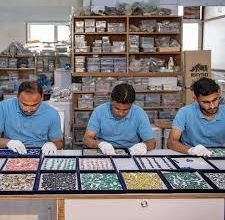In recent years, there has been a notable Noodle Official resurgence in the popularity of backyard farming. As people become more conscious of their environmental footprint and seek healthier, more sustainable lifestyles, growing one’s produce right at home has emerged as a practical and rewarding solution. Backyard farming offers numerous benefits, ranging from access to fresh, organic produce to reducing reliance on industrial agriculture and promoting a deeper connection with nature. In this article, we’ll explore the concept of backyard farming, its advantages, and how you can get started on your journey towards sustainable living.
The Rise of Backyard Farming
Backyard farming, also known as urban gardening or urban farming, refers to the practice of growing fruits, vegetables, herbs, and even raising animals in residential areas. While it has ancient roots, dating back to the earliest human settlements, the modern resurgence of backyard farming can be attributed to various factors. Concerns about food security, environmental sustainability, and health have fueled interest in growing one’s food.
Advantages of Backyard Farming
One of the primary benefits of backyard farming is the ability to produce fresh, organic produce right at home. Unlike store-bought fruits and vegetables, which may have traveled long distances and been treated with pesticides, homegrown produce is often healthier and more flavorful. Additionally, backyard farming allows individuals to have full control over the growing process, ensuring that no harmful chemicals are used.
Furthermore, backyard farming promotes sustainability by reducing the carbon footprint associated with food production and transportation. By growing food locally, fewer resources are required for cultivation, and emissions from transportation are minimized. Moreover, backyard farming encourages biodiversity and can create habitats for beneficial insects and wildlife, contributing to overall ecosystem health.
Getting Started with Backyard Farming
Starting a backyard farm doesn’t require a vast amount of space or expertise. Whether you have a small balcony, a modest backyard, or even just a sunny windowsill, you can begin growing your own produce. Here are some steps to get started:
- Assess Your Space: Determine how much space you have available for gardening and consider factors such as sunlight exposure and soil quality.
- Choose Your Crops: Select crops that are well-suited to your climate and growing conditions. Start with easy-to-grow varieties such as tomatoes, lettuce, herbs, and peppers.
- Prepare the Soil: Invest time in preparing your soil by adding organic matter, such as compost or aged manure, to improve fertility and drainage.
- Plant Your Garden: Plant your chosen crops according to the recommended spacing and depth. Consider interplanting to maximize space and prevent pests.
- Water and Maintain: Regularly water your garden, especially during dry periods, and monitor for pests and diseases. Practice organic pest control methods whenever possible.
- Harvest and Enjoy: As your plants mature, harvest your fruits and vegetables when they are ripe for the best flavor and nutritional value. Enjoy the satisfaction of eating food you’ve grown yourself!
Tips for Success
- Start small and gradually expand your garden as you gain experience.
- Keep a gardening journal to track planting dates, crop yields, and any issues encountered.
- Embrace experimentation and don’t be afraid to try new varieties or growing techniques.
- Get involved in your local gardening community through workshops, seed exchanges, and community gardens for additional support and resources.
Conclusion
Backyard farming offers a pathway to a more sustainable and self-sufficient way of life. By growing your own produce, you can enjoy fresh, healthy food while reducing your environmental impact and fostering a deeper connection with nature. Whether you have a sprawling backyard or just a few pots on a balcony, there are endless possibilities for cultivating your own little piece of paradise. So roll up your sleeves, dig in the dirt, and join the growing movement towards backyard farming and sustainable living.




